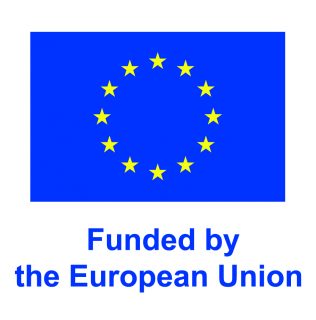Project name: Best Practises and Innovations for Sustainable Beekeeping (B-THENET)
Project number: 101059812
Call number: HORIZON-CL6-2021-GOVERNANCE-01
List of partners:
- University of Veterinary Medicine Budapest (UVMB), Hungary
- Coordinator: Istituto Zooprofilattico Sperimentale Delle Regioni Lazio E Toscana (IZSLT), Italy
- Agenzia Per La Promozione Della Ricerca Europea (APRE), Italy
- Bee Life European Beekeeping Coordination (BEELIFE), Belgium
- Cebelarska Zveza Slovenije (SBA), Slovenia
- Danmarks Biavlerforening (BIAVL), Danemark
- Ellinikos Georgikos Organismos, Dimitra (HAO), Greece
- Federation International Des Associations D Apiculture Apimondia (APIMONDIA), Italy
- Globaz, S.A. (LOBA), Portugal
- Instytut Ogrodnictwa – Panstwowy Instytut Badawczy (INHORT), Poland
- Latvijas Lauksaimniecibas Universitate (LLU), Latvia
- Sveriges Lantbruksuniversitet (SLU), Sweden
- Universidad Complutense De Madrid (UCM), Spain
- Universitaet Graz (UGRAZ), Austria
- Universitaet Hohenheim (UHOH), Germany
- Universiteit Gent (UGENT), Belgium
- University Of Zagreb, Faculty Of Veterinary Medicine (UNIZG), Croatia
- Univerzita Veterinarskeho Lekarstva A Farmacie V Kosiciach (UVLF), Slovakia
Total budget: 3 271 891,25 €
UVMB’s budget: 156,280 €
Funding rate: 100%
Duration:
- from 1st of September 2022 to the 31st of August 2026 (48 months)
Project website: https://www.bthenet.eu/
LinkedIn page: https://www.linkedin.com/company/bthenetproject/
Facebook page: https://www.facebook.com/BTHENETProject
Instagram page: https://www.instagram.com/bthenetproject/
Cordis website: https://cordis.europa.eu/project/id/101059812/en
Summary:
The B-THENET thematic network takes a multi-stakeholder approach to modernising the EU beekeeping sector, sharing knowledge that can be put into practice while promoting innovation and digitalization. By passing on and training useful and applicable best practises, it promotes a more economically viable and sustainable operation of apiaries.
The multi-stakeholder approach involves the entire beekeeping sector to collect, categorise, and select best practises and narrowly known relevant research results. Only effective and ready-to-use practises that meet the needs of beekeepers will be selected and published on a public platform and in national subnets, adapting the practises to each region, language, equipment, bee genetics, diseases, and the scale of operation of the apiary. This approach will support the development of validated best practises.
Through sociological studies, they will be mapped through the most popular communication channels among beekeepers. To maximise the effectiveness of dissemination, a specific, long-term platform will create by the project to share best practises through attractive, easy-to-understand audio-visual materials translated into 15 EU languages.
The role of the University of Veterinary Medicine Budapest (UVMB) in the B-THENET project covers the collection and evaluation of beekeeping best practises with the involvement of the National Hungarian Beekeeping Association (OMME). Furthermore, UVMB will validate the practises in the national B-THENET centre established in Hungary, as well as communicate and disseminate the results of the project.


